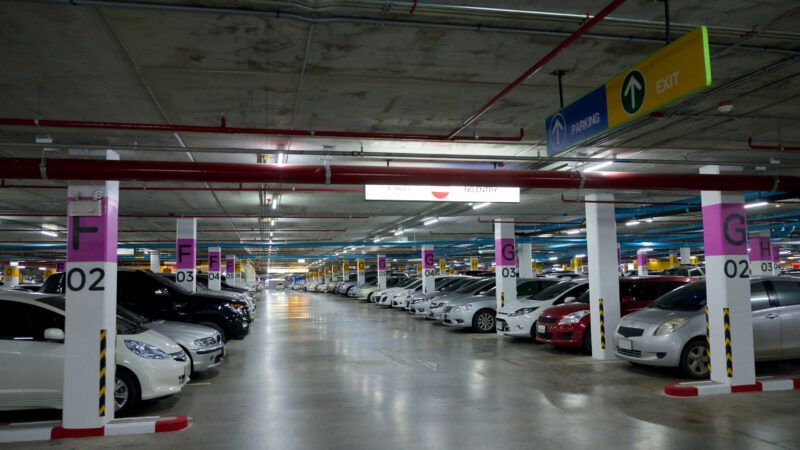Cities Switch From Requiring Too Many Parking Spaces To Banning Too Many Parking Spaces
Nashville is the latest city to eliminate minimum parking requirements while simultaneously capping how much parking developers are now allowed to build.

This past week, Nashville's Metro Council approved a new ordinance that eliminates minimum parking requirements in the city's "urban zoning overlay" district. From now on, developers in those urban zones won't have to build parking spaces no one wants.
That doesn't mean Nashville builders are free to decide how much parking to construct, however. The city's new ordinance leaves the old parking standards in place but says from now on they'll be interpreted as parking maximums that cap the number of spaces developers are allowed to build.
This is part of a trend.
Across the country, jurisdictions are waking up to the high costs of mandated parking. But the reforms they enact often pair an elimination of costly parking minimums with counterproductive parking maximums.
In 2021, Berkeley, California, passed reforms that eliminated minimum parking requirements while also capping how much parking could be built by right in "transit-rich" areas. It's a similar story in Minneapolis, which has eliminated parking minimums citywide but established parking maximums in certain areas of town.
The 2016 update to the zoning code in Washington, D.C., got rid of parking minimums for some downtown areas while also establishing new limits on above-ground parking garages. In 2015, Fayetteville, Arkansas, eliminated its parking minimums while keeping maximum parking ratios.
It's, of course, true that parking minimums are costly. These near-ubiquitous rules typically establish ratios of required parking spaces per new residential unit or for a given amount of new commercial floor space. To meet those minimums, developers often have to consume more land than they would otherwise or reduce the amount of rent-generating floor space they build.
On smaller lots, meeting parking minimums can often mean building incredibly expensive parking garages where each space can cost north of $75,000. Technically legal commercial uses are often rendered practically infeasible by minimum parking requirements.
But imposing parking maximums comes with its own costs.
At best, they'll force developers to make some special showing to city officials that their buildings will require more spaces than what the parking maximum allows in order to obtain a variance. The costs and delays of that process will be paid by consumers too.
Worse still, parking maximums could prevent builders from adding parking spaces they think are necessary.
The problem with parking minimums isn't per se that they made buildings more expensive; it's that they added expenses people don't think are worth paying.
If people are willing to pay for additional parking spaces but are prevented from having them, that will reduce the utility of a new development. Residents of a new apartment might have to compete for too few parking spaces. Business owners could lose customers for lack of available parking.
Multiply those results across a whole city, and overall economic efficiency suffers.
By imposing parking maximums, cities also make the case against parking minimums weaker.
The most compelling argument for ditching those policies is that you don't need the government micromanaging the number of parking spaces buildings need. You know it's a compelling argument because even policy makers who are continuing to micromanage parking spaces keep making it.
Eliminating parking minimums "doesn't mean that they can't build parking, that just means that these developments will not be overparked," Nashville Metro Councilmember Angie Henderson told The Tennessean. Similarly, Berkeley City Councilmember Lori Droste told Berkeleyside that "We're not banning parking…. We're just trying to not require people to build parking if they don't need it."
It's nice libertarian-sounding rhetoric. It's also untrue. Both cities are, in fact, banning parking above a certain threshold. If the government is still appointing itself the regulator of parking spaces, reasonable people can wonder what's so bad about requiring a minimum number of parking spaces in the first place.
Notably, California's statewide elimination of parking minimums near transit didn't come paired with a bunch of parking maximums. If it had, it likely would have faced a lot more opposition.
Cities that have eliminated parking minimums are seeing the benefits in terms of new businesses and apartments that would have been illegal or infeasible under the old rules.
The lesson is that developers can figure out for themselves how many parking spaces the ultimate users of their buildings will actually want. But too many cities are trying to find new ways to control developers' parking decisions.
Rent Free is a weekly newsletter from Christian Britschgi on urbanism and the fight for less regulation, more housing, more property rights, and more freedom in America's cities.


Show Comments (51)